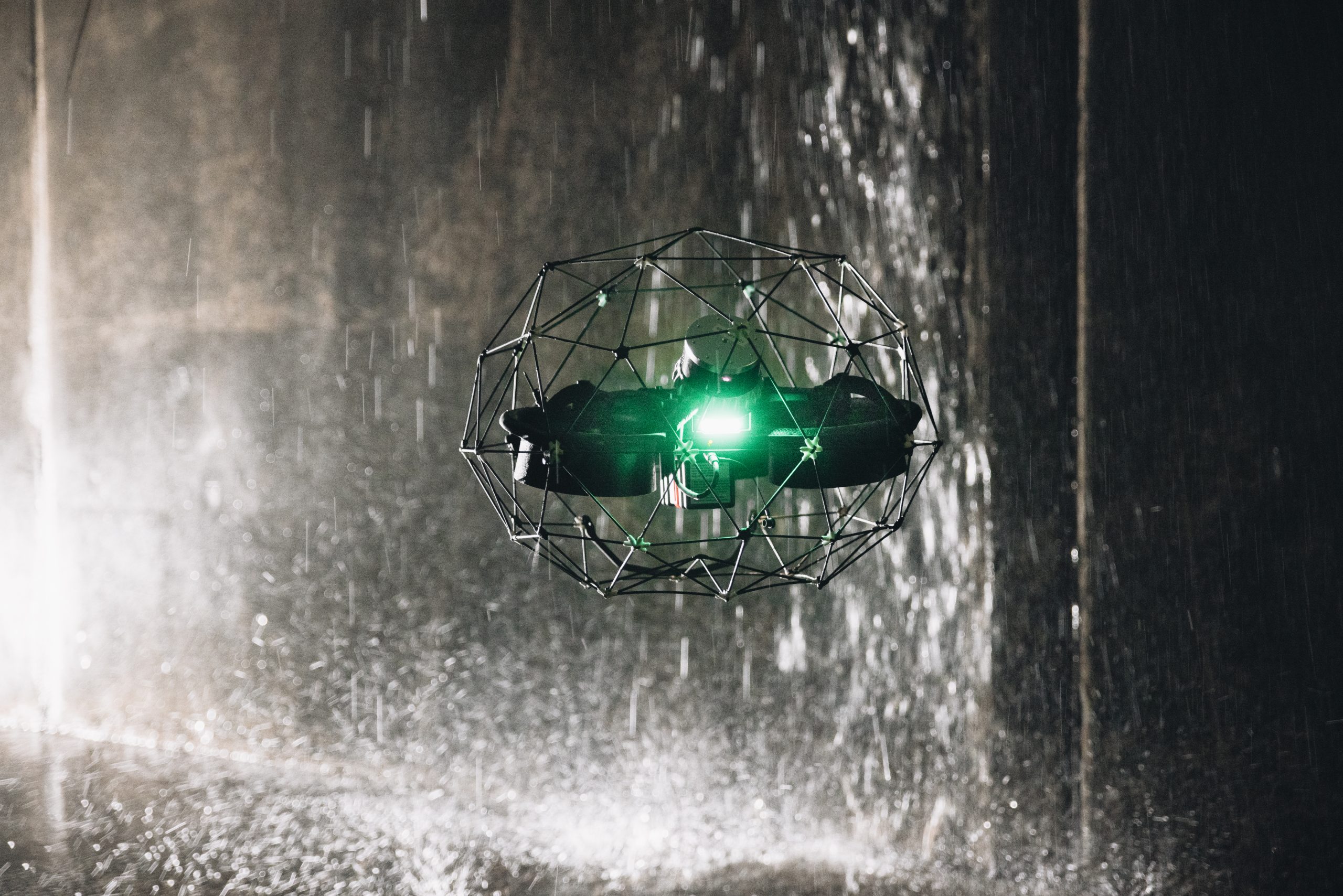Case Study: The Elios Inspection of Enzymes Fermenter Tanks Passes with Flying Colours

The inspection of interior spaces has long been a challenge for maintenance teams. If you add complex geometry into the mix, this is significantly magnified. There have been many products brought to market over the years to address such issues.
Drone technology has been one of the most keenly explored, yet the criteria for piloting within crowded spaces has historically been a sticking point. This is one of the foremost reasons that operations have continued with lengthy and expensive inspection processes, such as confined space entry, the erection of scaffolding or using fixed assets (such as cranes) to carry out these essential tasks.
Novozymes, a global leader in the enzyme and microorganism field, was keen to explore a different approach at their facility in Nebraska, USA.
The Assets
The assets that needed to be surveyed were three fermenter tanks that are used to produce a variety of enzymes. The batches of these change every 7-10 days. The company used to carry out an inspection after each, but when carried out in a traditional manner, this was both costly and time-intensive to achieve. Therefore, the rate was changed to every 10 batches.
However, Novozymes was keen to improve this ratio. They requested Flyability to carry a pilot project to inspect three tanks, two of them located indoors and one outside. The aim was to both reduce the timescale and increase the quality of the inspection process.
The Challenges
The greatest challenges were as follows:
- Each asset needed to be checked in its entirety, with a complex external geometry of agitator shafts, a central dome, dosing leg and baffles.
- Two of the assets were housed indoors.
- Traditional inspections utilised a crane and human inspectors, meaning that each took many hours. This resulted in extensive asset downtime and associated costs.
The Solution
Flyability deployed its flagship product, the Elios 3, to carry out the trial. Piloted by one of their experienced operators, each asset was inspected in turn.
The first indoor fermenter tank required three flights of eight minutes. The second indoor asset needed a single flight, as did the one located outdoors. Each of these flights was carried out away from the line of sight, with the pilot navigating the complete geometry of the asset, checking for general integrity and the more focused requirements requested by the client.
These included:
- The overall cleanliness of the dome and dosing legs
- The integrity of the agitator shaft and blades
- The line of vertical bolts on the baffles
- The integrity of the pedestal at the base
- Capturing the serial number of the container and whether it is open or closed (necessary to cross-check the information of the company’s inventory with the containers)
Not only did the Elios inspection take only minutes as opposed to the hours of a traditional inspection, but additional data was captured that had been missed on the previous inspection. These were:
- A missing bolt on an agitator shaft of the second tank.
- A piece of fabric stuck in a bolt on the first tank.
In Summary
The company was very impressed by the results of the pilot, which exceeded their expectations. Once again, the power of Elios showed how its use not only dramatically reduces the time it took to carry out such an inspection task, but that it returned improved data and removed the risk posed by humans performing at-height inspections.
Flyability also gained valuable information from the trial. This included discovering how to inspect a fermenter tank in a single flight. This further reduced the timescale, getting it down to an impressive sub-10-minute action that included HSE procedures.
Advanced technology, such as the Elios 3, is just one example of how solutions-focused procurement provider, Nexxis, works with their clients to discover innovative ways to improve NDT tasks. From drones to robotic systems and everything in between, the experienced team is committed to assisting their clients in upscaling the inspection process.
Contact us to find out more about RVI equipment or any of our other inspection products, or request a quote online.
You might also find this useful: Case Study: RVI Technology Reduces Risk, Duration & Cost of Mandatory Flare Knockout Drum Inspection
